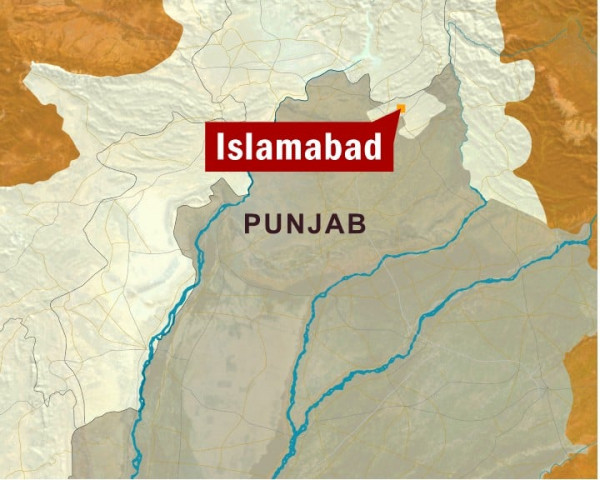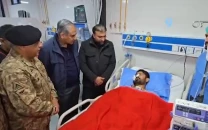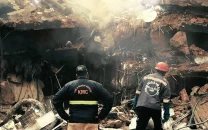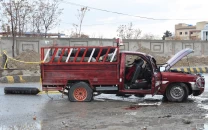Women Caravan has a bumpy ride
Plight of the flood-affected women highlighted ineffectively.

The two-day Women Caravan of flood affected women from Khyber-Pakhtunkhwa, Punjab and Sindh failed to leave its mark due to lack of proper management.
It was organised by ActionAid Pakistan (AAPk) and Potohar Organisation for Development Advocacy (PODA) in Islamabad to mark the one-year anniversary of the devastating floods of 2010.
During these two days, the caravan had to travel within the capital to demand budgetary allocation for a comprehensive flood rehabilitation package for women. It aimed to highlight their issues in the aftermath of floods, such as issuance of Watan Cards to flood affected women, women’s land ownership and control over productive resources and prioritisation of women and girls in the rehabilitation process.
Despite all the challenges they are facing, the flood victims highlighted their miseries through theatre performances and folk music but better management could have helped them showcase their problems in a more effective way.
The first day of the event was supposed to be held inside the Fatima Jinnah Park, F-9, but the organisers did not get permission from the Capital Development Authority (CDA) and had to make arrangements outside the main gate of the park. A 40-feet float decorated with banners was parked at the road side and no seating arrangement was there for the audiences, which comprised mainly of the people who passed by the park. No proper security was there and taking advantage of this, some men attempted to sexually harass the female participants.
Due to the continuous traffic movement, the audience could not focus on the performances given by the rural women.
Manzooran Mai, a resident of Taunsa and a mother of six children, shared her painful story after the floods by singing a song in Saraiki language. Mai’s word described her agony but also highlighted the glimmer of hope that exists among many individuals like her. Her words can be translated into, “My life has been devastated, my home has been shattered, my bed lies broken. But I still have hope to live a happy and peaceful life.” Later, a cleric from a nearby mosque interrupted the event and criticised the organisers during a musical performance on which the event had to end.
On the following day, a theatrical performance was given by the rural women at Quaid-i-Azam University. The scorching heat, however, made it difficult for the audience to enjoy the performances.
One performance depicted the misery of a woman. She was shown crying for her infant who was taken away by the flood water along with all her valuables.
In another act, the hard work done by home-based workers in return for paltry revenue was highlighted.
Later in the evening, the rural women gathered in front of the National Press Club where there was no seating arrangement as the event was supposed to be held on the float which did not come. People could be seen splashing glasses inside water drums lying on the ground to drink water. The participants sat in the tents and gave performances. They highlighted the plight of girls who want to get education but due to poverty and fear of being harassed, have to stay back at home.
On the occasion, they presented a Charter of Rights for Flood Survivor Women of Pakistan. However, no government representative was present to listen to their pleas.
Published in The Express Tribune, May 26th, 2011.



















COMMENTS
Comments are moderated and generally will be posted if they are on-topic and not abusive.
For more information, please see our Comments FAQ